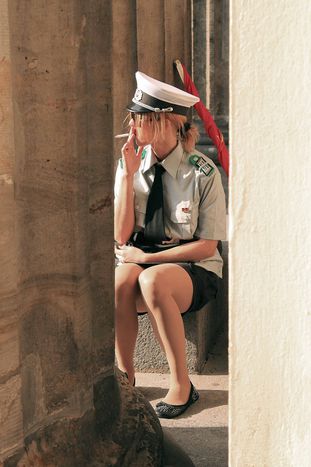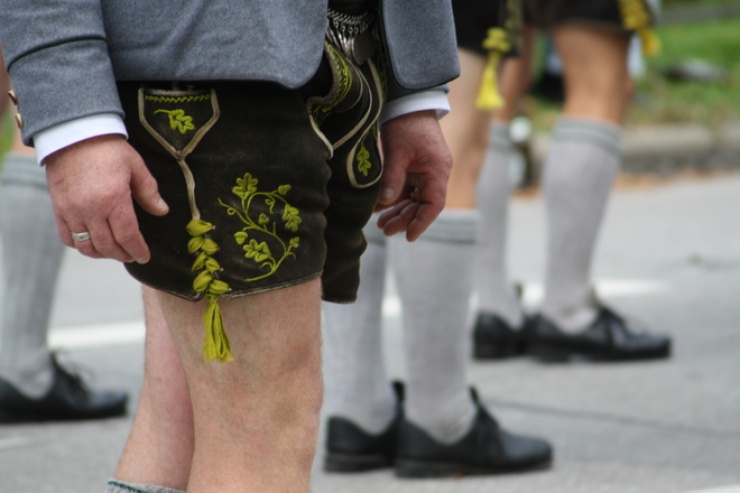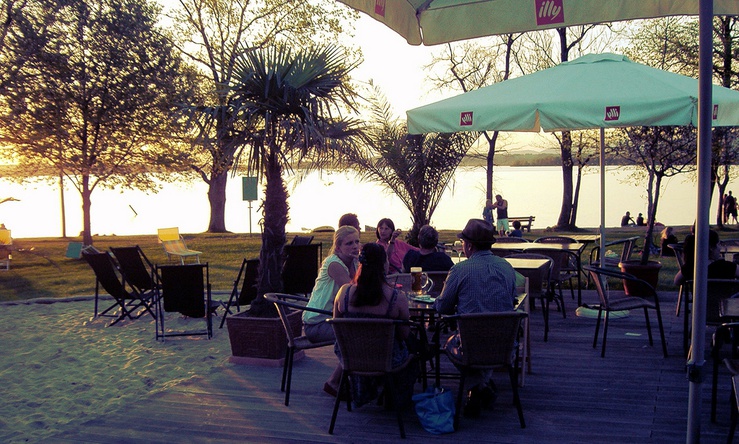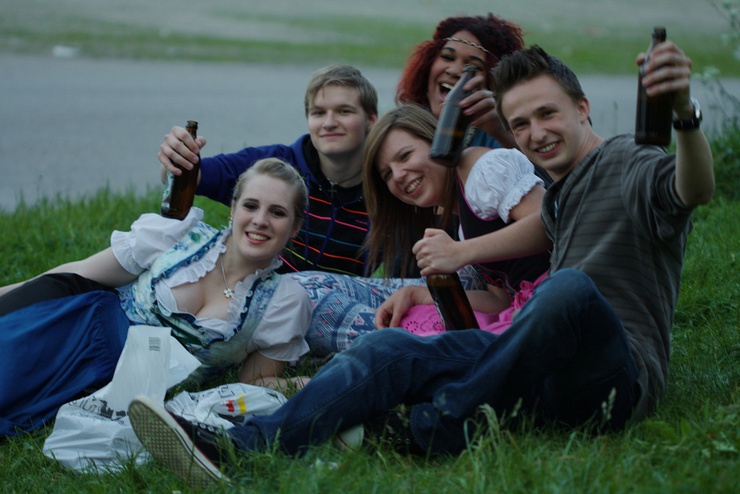
Irish reflections on Germany, romance and stereotypes
Published on
The austere zeitgeist of an Ireland in the midst of a grim financial fiasco has even further skewed our view of Germany and all things German, and has opened a door to reflection on my own experiences of spending nigh on seven years in that country. Third in a series from cafebabel Dublin
Although seven years have passed, the doleful expression on Irish people’s faces still comes easily to mind on learning I was domiciled in Germany. As if to lessen the severity of my supposed sentence, people would, in a well-disposed act of pitied kindness, grab my arm, tilt their head sympathetically, and ask such questions as 'Why Germany?', 'Was it your job that brought you over there?', 'Have you long to go there?' My bemused look usually went unnoticed, my jovial and effervescent experiences of the country oft on deaf ears. The land of Bach, Beethoven and Brahms, the epic poetry of Goethe, the Black Forest, the Romantic Road, awe-inspiring Alpine lakes and fairytale castles nestled in the majestic Bavarian Alps seemed invisible through their Irish eyes. In its place a vista of a land defined by the industrial Ruhr valley, engineering, cold winters, a diligent, dogmatic and dour race, swastikas and the SS, the Luftwaffe, and of course Hitler and The War.
Windows of wonder
History imprisons us and befuddles our view of the outside world and especially Germany – even before the toxic, acerbic financial crisis. Ignorance is of course non-discriminating and commutes bi-directionally. For Germans also seem reciprocally beholden by archaic images of Ireland. The adjectives green, agricultural, musical, clean, rustic and British abound. German weather forecasters scarcely mention Irland but rather speak of fronts coming in over the die Britischen Inseln ('British Isles'). Many Germans, especially the older generation, routinely employ the umbrella term die Engländer (the English) when speaking of the Irish (or indeed anyone from Britain or Ireland) rather than die Iren ('the Irish').

What, however, is Germany like when, to paraphrase the Kerry writer Bryan MacMahon, one pulls back the heavy curtains of preconception to reveal the windows of wonder? Germany is an open, modern, multicultural, respectful, beautiful, clean and safe place to live. Its warm, dry summers (relative to Ireland) are conducive to outdoor-living, where families and friends gather in splendid parks, by rivers and lakes for barbeques, recreation and sport. A vibrant café culture abounds where one whittles away hours reading or people-gazing in the delightful afternoon sunshine. An after-work visit is a must to an outdoor Bavarian beer garden, nestling in the shade of chestnut and linden trees, serving the finest, coolest beer known to mankind.

Work practices are best defined by the maxim - as the Irish christian brothers pithily put it - it matters not how many hours you put in, but what you put into the hours. They work conscientiously, consistently, but do not let themselves be defined solely by work. It is not uncommon to see Germans having their Feierabend (knocking-off time) at midday on Fridays! Salaries are high, and the trade unions still strong, albeit haemorrhaging members to smaller unions. Flexi-time, working from home and a superior annual leave (30 days or so and far more bank holidays) are much more the norm than in Ireland. However, ridiculous über-bureaucracy and excessive start-up costs hosed into submission all but the most fervent, fiery entrepreneurial spirit.
Magic emerald doors
Sunday down time for shops and adherence to religious feast day holidays are much more in vogue. The hand of tradition has a tighter grip on events of a cultural, religious or linguistic variety, where shores are widened to facilitate the relentless sweeping tide of globalisation. There are nonetheless salient signs that Germany has not been completely spared. (Pseudo-)English words have become all-pervasive in the language over the last years; 'Meeting' is substituted for Besprechung, 'Team' for Mannschaft, 'Chatten' for Plaudern and so on. This linguistic phenomenon has been baptised Denglisch, a portmanteau of the words Deutsch ('German') and English.

Whilst being Irish will not open any magical emerald doors for you in Germany, the locals tend to like the Irish overall. Their great ability to listen compliments our incessant talking. The insouciant attitude of the Irish is admired, their gregarious, convivial company enjoyed, especially in the many Irish pubs that dot the country. The seeds of love were often sown at such places, especially between Irish guys and German girls (less so the other way around); perhaps the mid-ground where Irish recalcitrance meets German adherence to rules being a catalyst.
I once had to explain what small talk was; it proved to be quite a cultural challenge
Sadly I have rarely met so many lonely people in my entire life. You see it in cafés, restaurants, pubs, überall (everywhere). Germans tend to be extremely private, and usually converse with only those they arrived with. Mingling is melded to mistrust and ulterior motives and a little misgiving. I once had to explain what small talk was; it proved to be quite a cultural challenge. Meeting new people seems infinitely harder in their culture. Many Germans confess to aspiring to emigrate one day, but only once their pensions kicked in. That they felt like a stranger in their own country. Perhaps a stranger in an obscure paradise?
This article is published courtesy of cafebabel.com Dublin, our pan-European network’s newest local team members of bloggers, journalists and photographers. Watch this space for their new blog platform in early 2013, and join the facebook group here
Images: main, policewoman by the Brandenburg Tor in Berlin (cc) gravitat-OFF; in-text traditional costume from 2009 Munich beer festival (cc) akante1776/ Mythos Muenchen; Chiemsee lake (cc) Sporthotel Achental/ Anna; young revellers in Germany (cc) Traveller_40/ all courtesy of flickr



